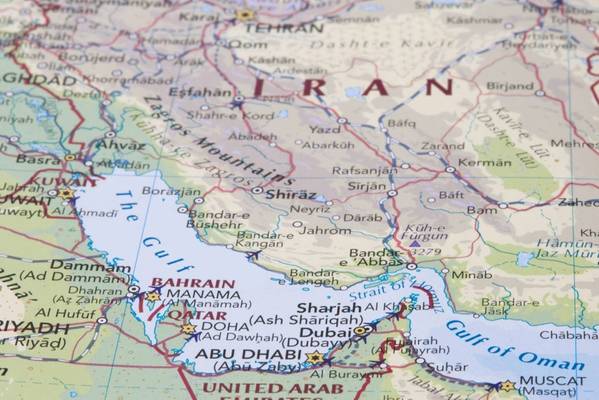
Commercial ships are sailing close to Oman and are being advised by maritime agencies to avoid Iran's waters around the Strait of Hormuz, with the risk of the conflict between Israel and Iran escalating, shipping sources said on Wednesday.
Iran has in the past threatened to close the critical Strait of Hormuz to traffic in retaliation for Western pressure. Any closure of the strait could restrict trade and affect global oil prices.
In the latest measure, ships sailing towards Hormuz are looking to minimise risks and are sailing close to Oman's coast for much of the journey.
The Gulf of Oman is 200 miles (320 km) wide - much of it international waters - and is bordered by Oman and Iran, as well as the United Arab Emirates and Pakistan, which have territorial waters of 12 miles.
Journeys will still need to be made through Hormuz itself, which is 21 miles (33 km) wide at its narrowest point. The two shipping lanes are just 2 miles (3 km) wide in either direction.
A larger cluster of ships was sailing closer to the Omani coast on Wednesday, while mainly Iranian-flagged vessels were sailing within Iranian waters, according to ship-tracking data on the MarineTraffic platform.
"Taking into account that during the past, there have been incidents of violations of freedom of navigation and maritime safety for merchant vessels near the shores of Iran, we strongly suggest that Greek-flagged vessels sail, if possible, away from waters of Iranian jurisdiction when in the Persian Gulf, Strait of Hormuz and Gulf of Oman," the Greek Shipping Ministry said in a statement on Tuesday.
Iran's Supreme Leader Ayatollah Ali Khamenei said in a statement read by a television presenter on Wednesday that his country will not accept U.S. President Donald Trump's call for an unconditional surrender, in his first comments since Israel began bombarding Iran on Friday. Iran has responded with deadly barrages across Israel.
Electronic interference with commercial ship navigation systems has surged in recent days around the Strait of Hormuz and the wider Gulf, adding to risks for sailors hauling oil cargoes.
Average earnings for the supertankers that carry a maximum of 2 million barrels of oil have surged in recent days to over $50,000 a day from over $20,000 a week ago, according to analysts.
"The regional threat level remains significant as strikes continue from both Iran and Israel," the multinational, U.S.-led Combined Maritime Forces JMIC Information Center said in an advisory, adding that the maritime threat level is elevated.
QatarEnergy has instructed tankers to remain outside the Strait of Hormuz and to enter the Gulf only the day before loading, amid military strikes between nearby Iran and Israel, two sources familiar with the matter told Reuters on Tuesday.
(Reuters)




